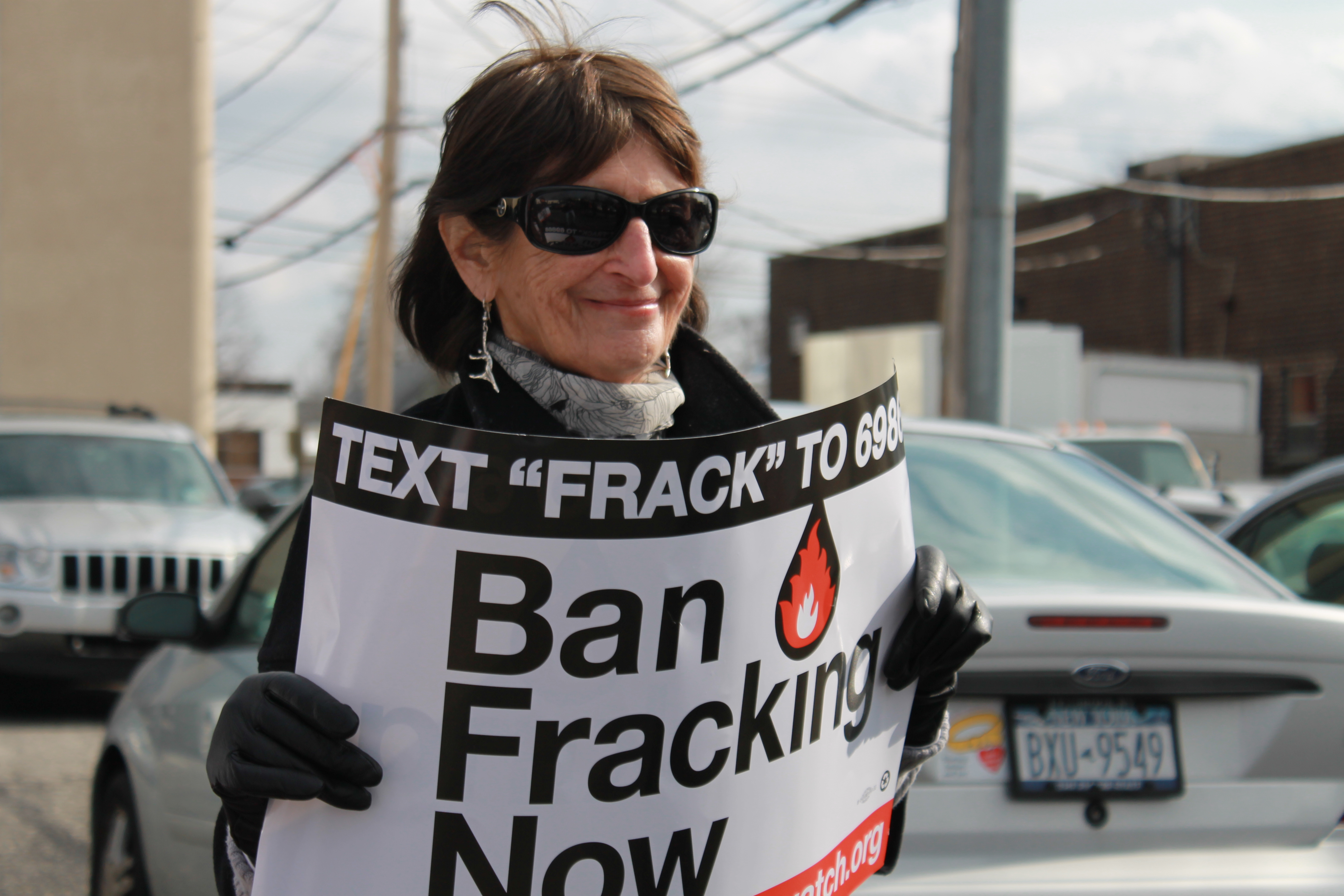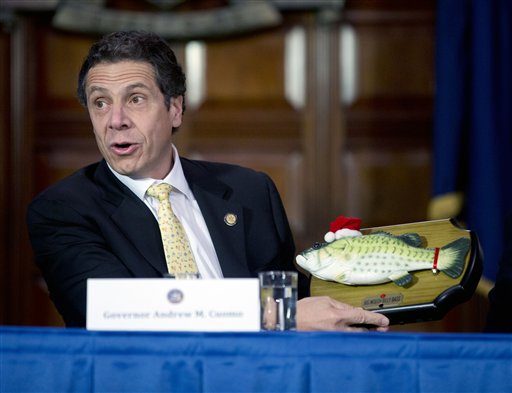

This woman was one of about a dozen Long Islanders who gathered in Garden City Park to ask Sen. Jack Martins to help ban fracking. (Photo credit: Rashed Mian/Long Island Press)
A group of environmental activists, civic group members and concerned citizens assembled outside the Garden City Park office of state Sen. Jack Martins (R-Mineola), asking him to co-sponsor legislation that would forbid the state from opening upstate New York to drilling for natural gas using controversial hydraulic fracturing.
About a dozen Long Islanders held signs that read “Ban Fracking Now” on Friday as they voiced their concern over the drilling debate and handed over a list of names from nearly 2,000 residents who want shale drilling companies to stay away from New York State.
“We are here to send one message, to urge our state senator, Jack Martins, to support legislation to ban hydraulic fracturing in New York,” said Sam Bernhardt, the Long Island organizer for Food and Water Watch.
Aides to the senator watched the press conference and handed out a column written by the senator in which he documented the positive and negative effects of fracking.
“As it stands, it is clear that we should hold off on hydro-fracking in New York State, at least until we are certain that these concerns have been addressed,” Martin writes.
Some of those concerns Martins wrote about relate to the “liquid slurry that is pumped into the ground.”
A spokesman for the senator said, “If there was any bill out there that come before the senate that allows fracking, he would vehemently oppose it.”
Fracking is a drilling technique that uses high-pressure water, chemicals and sand to crack shale and release natural gas. It has quickly become one of the most contentious environmental issues in recent years because of concerns over pollution, spills and contamination of drinking water.
Supporters argue that if done safely, fracking can lead to an economic boost in struggling rural areas of upstate. Many drilling companies have their eyes set on Marcellus Shale, rock formation that extends deep underground through parts of New York, Ohio, Pennsylvania and West Virginia.
If fracking is allowed in New York State, the drilling would be done in upstate areas, not Long Island. But Patti Wood, of Grassroots Enviornmental Education, said Long Islanders should still be concerned because leftover liquid from fracking could potentially be disposed at Long Island sewage treatment plants.

Long Islanders seek ban on fracking (Photo credit: Rashed Mian/Long Island Press)
“Once we pollute the land, there’s no going back and the process of fracking not only…disrupts the shifting of the earth…but it also releases methane into the environment,” said Bhavani Jaroff, of Slow Food Huntington.
There have been reports of recent earthquakes in Ohio and Oklahoma, which geologists have linked to fracking, according to a report from Discovery News.
Currently there is a moratorium on fracking in the state, and the Department of Environmental Conservation is currently studying whether hydrofracking would be a safe way to extract natural gas.
A spokesman for state Senate Majority Leader Dean Skelos (R-Rockville Center) said he would support fracking if it “can be done safely.”
But environmentalists maintain that pumping a mixture of water and chemicals into the ground isn’t safe.
“We’re very terrified by the prospect of a poison being left beneath the earth,” said Paul Auerbach, vice president of Long Island Interfaith Alliance.






